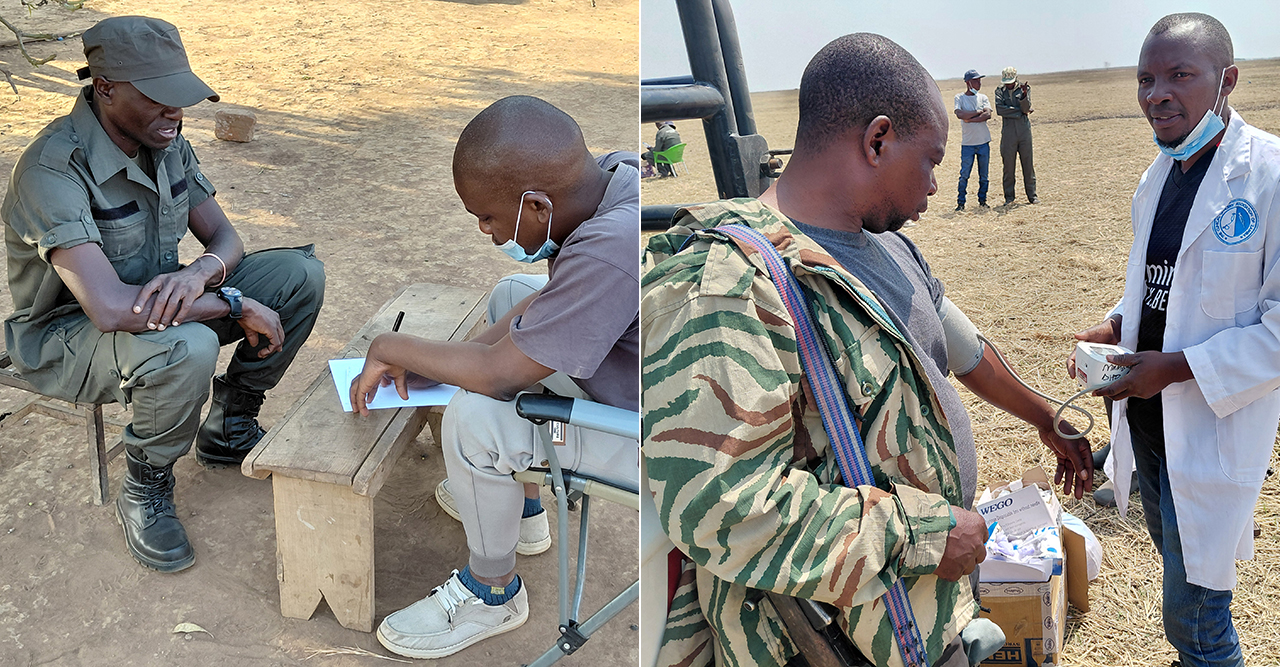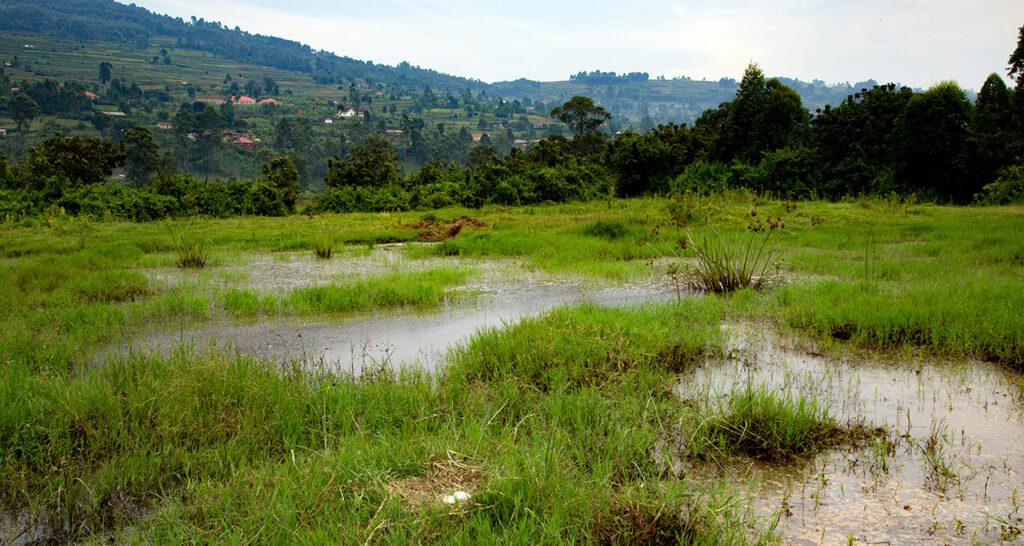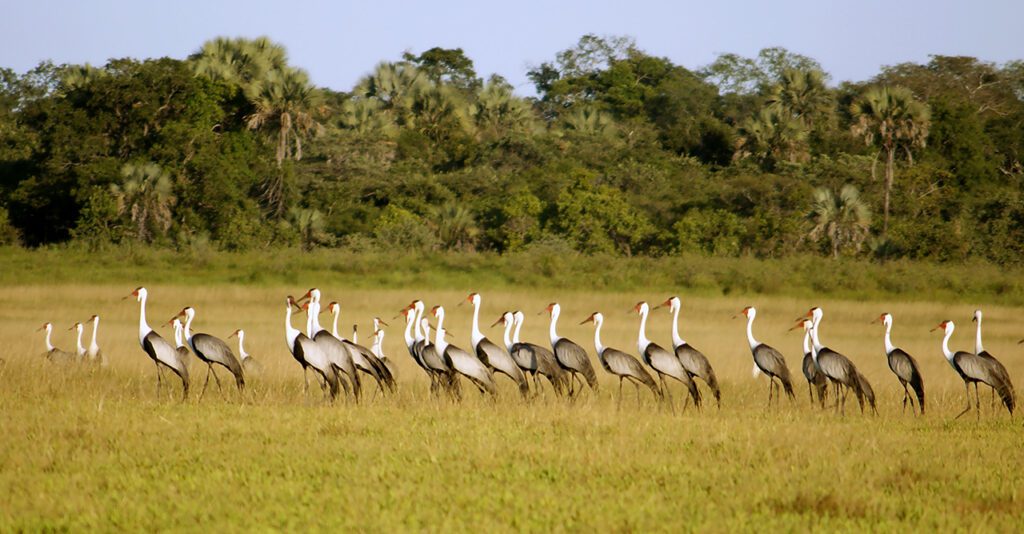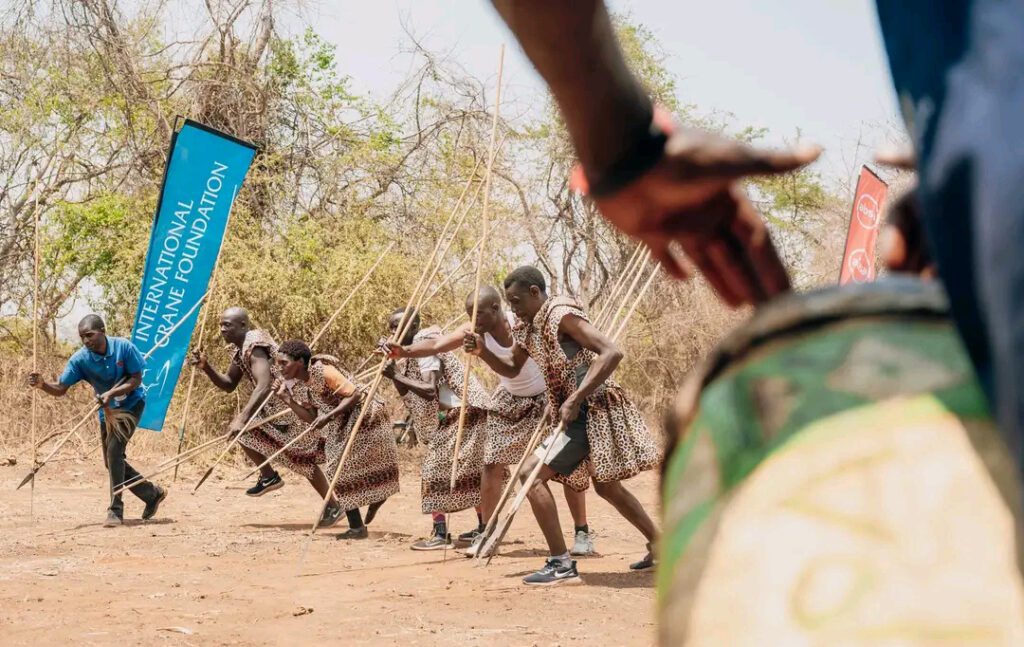Safeguarding Health for Conservation Heroes
Voluntary Medical Outreach at Blue Lagoon National Park
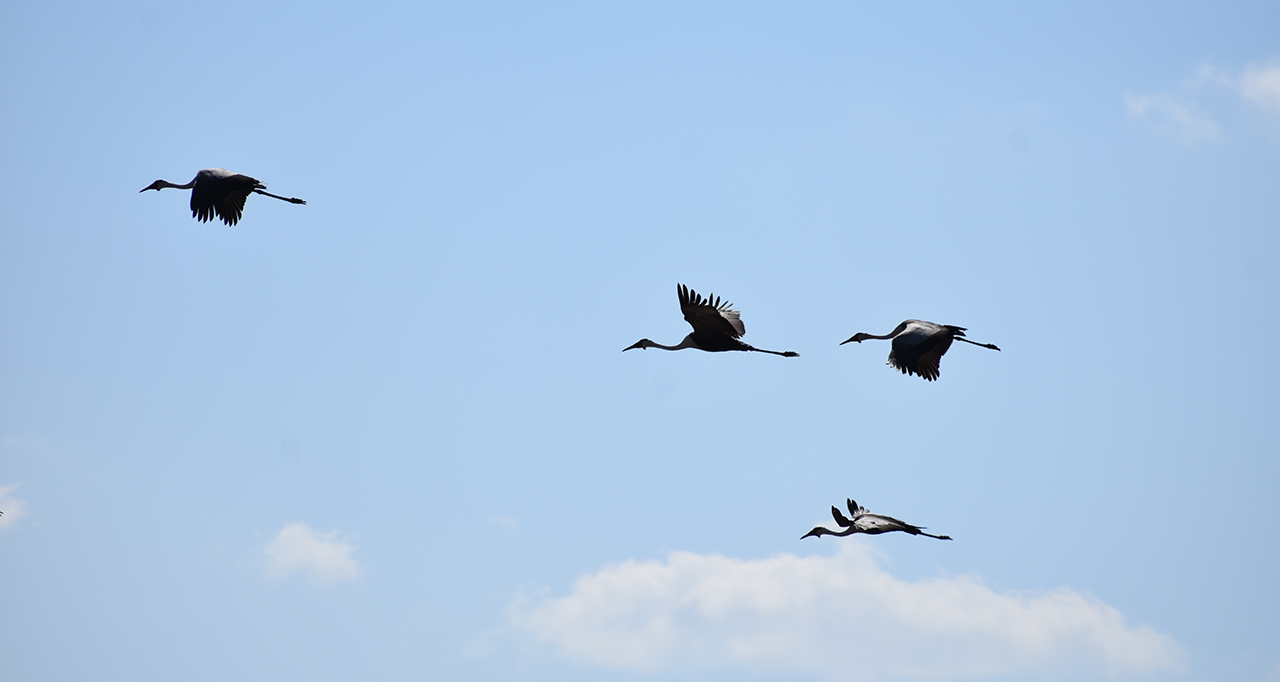
Wattled Cranes in flight over the Kafue Flats in Zambia. Rich Beilfuss/International Crane Foundation
This summer, the International Crane Foundation in Zambia partnered with the Mumbwa District Health Office to conduct a voluntary health screening for Wildlife Police Officers, Community Scouts, International Crane Foundation staff, and their families at Blue Lagoon National Park.
For many of these dedicated conservation heroes, working in remote and demanding environments means their health often takes a back seat to the urgent task of protecting Zambia’s precious wildlife. This initiative was designed to ensure they remain physically strong and mentally well to effectively carry out their vital work.
By ensuring Wildlife Police Officers and Community Scouts are healthy, we strengthen the frontline of conservation itself. International Crane Foundation photo
Why the Screening Was Important
The daily life of Wildlife Police Officers and Community Scouts requires resilience. From long patrols under harsh conditions to responding to poaching threats, their work environment is both mentally and physically demanding. Ensuring their well-being is not only a personal benefit but also critical for effective conservation.
The screening covered:
- General Health Assessments
- Dental Services
- Eye Examinations
- Cervical Cancer Screening
- HIV Testing and Counselling
The main objectives were to screen field officers, their families, and surrounding communities for different ailments. Along with identifying officers who may require further medical attention, particularly those with long-standing non-communicable diseases such as hypertension and diabetes.
A team of 11 medical personnel and a driver carried out the exercise, including clinical officers, dental therapists, registered nurses, an HIV nurse practitioner, counsellors, and ophthalmologists. They were supported by the Area Warden from the Department of National Parks and Wildlife and the International Crane Foundation’s Operations Manager.
Logistical support for the outreach was fully provided by the International Crane Foundation with support from the Diedrich Family Foundation. Screening was conducted at Naleza Park Headquarters, Wildlife Police Posts, and with patrol teams deep inside the park.
The outreach went beyond the field officers. In total:
- 25 field staff (8 Wildlife Police Officers and 15 Community Scouts) were screened.
- 80 community members (mostly family members of staff and nearby residents) also received care.
The exercise attracted overwhelming interest, demonstrating the community’s need for accessible health services.
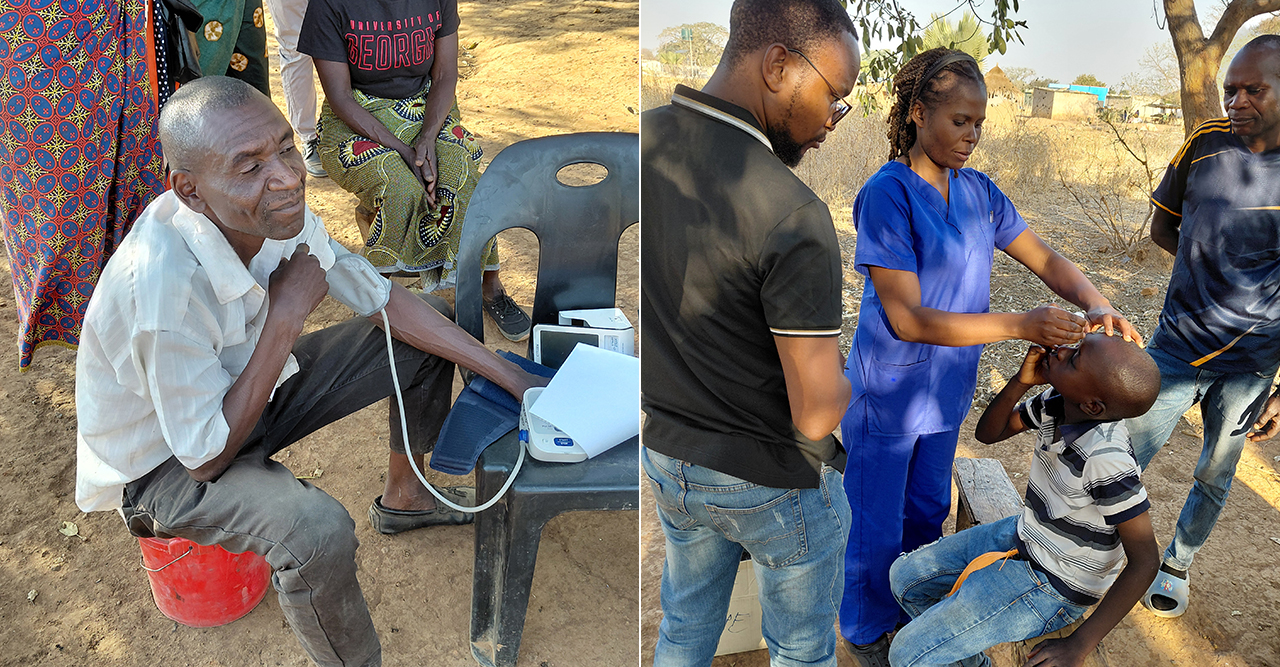
Twenty-five field staff, along with 80 community members, including family members of staff and nearby residents (pictured) received care during the health screening. International Crane Foundation photo
A Step Toward Healthier Conservation Teams
The outreach highlighted the importance of regular health check-ups for field officers and their families. Key recommendations included:
- Quarterly general screenings, including tests for hypertension, diabetes, HIV, and other conditions.
- Regular cervical cancer screening for female staff and family members.
- Ongoing distribution of preventive tools such as condoms.
- Providing transport or mobile health services to ensure patients with serious conditions can access hospitals.
- Expanding the program to cover surrounding communities consistently.
- Incorporate principles of One Health in the approach.
This medical outreach was more than a one-time event—it was a demonstration of commitment to human well-being. By ensuring Wildlife Police Officers and Community Scouts are healthy, we strengthen the frontline of conservation itself.
The Mumbwa District Health Office expressed gratitude to the International Crane Foundation and the Department of National Parks and Wildlife for initiating this program and pledged continued collaboration.
